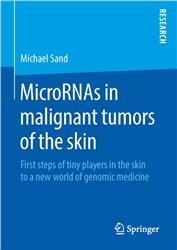Systemic Sclerosis
Basic and Translational Research
| Auflage | 2016 |
| Seiten | 200 p., 60 illus. |
| Verlag | Springer |
| ISBN | 9784431557074 |
| Artikel-Nr. | 596120 |
Lieferzeit ca. 5 Werktage
Produktbeschreibung
This book provides a comprehensive review of the recent advances in the research of systemic sclerosis (scleroderma). Systemic sclerosis is a complex autoimmune disease characterized by vasculopathy, fibrosis, and immune activation. This disease is also associated with certain susceptibility genes and is affected by epigenetic regulation. Recent studies have revealed a variety of new evidence suggestive of the pathogenesis of the disease. These include endothelial progenitor cells, cytokines and growth factors, and B cells. Studies using animal models have also provided novel insight into the pathomechanisms. In addition to these topics, the book covers clinical research regarding biomarkers and autoantibodies. This volume will benefit all rheumatologists and dermatologists as well as basic scientists, especially immunologists, molecular biologists, and biochemists.

Bleiben Sie informiert!
Melden Sie sich für den frohberg.de-Newsletter an und nutzen Sie jetzt Ihre Vorteil:- Willkommens-Dankeschön: Beatmungsmaske Rescue Me
- Aktuelle Neuerscheinungen und Empfehlungen
- Exklusive Angebote und Kongress-Highlights






